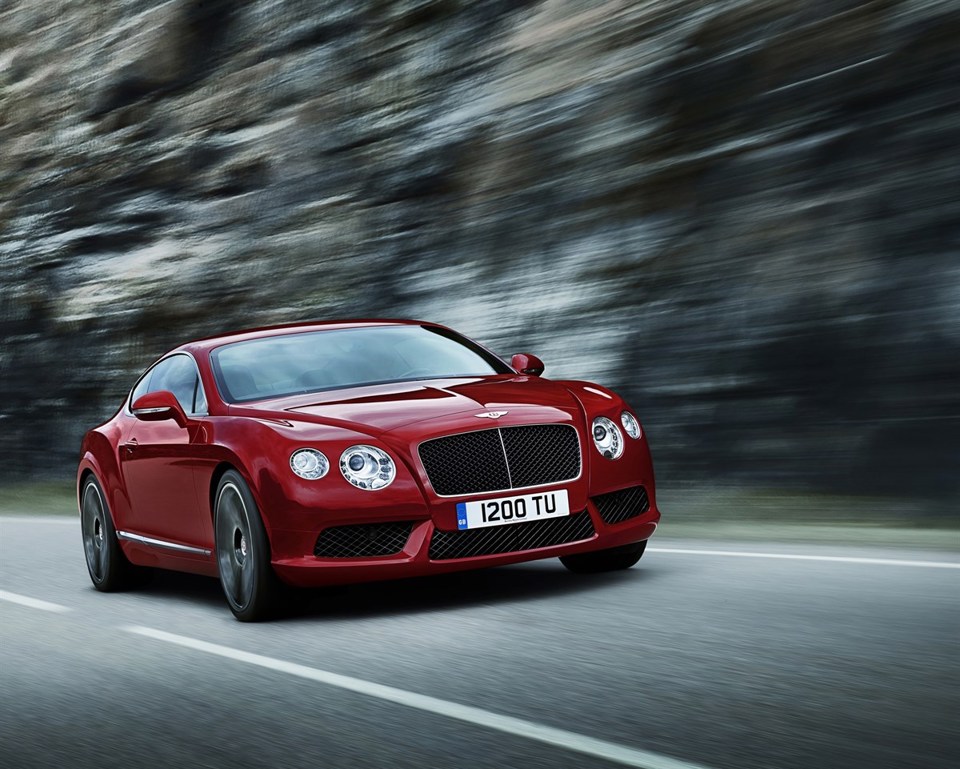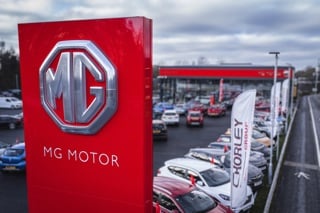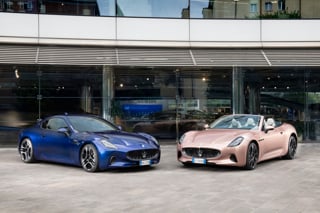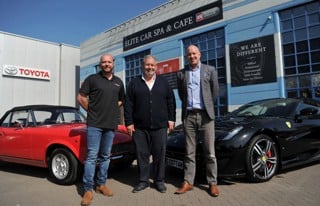Need to know:
- Carmaker lost two dealers and sales plunged
- Now growing steadily in reach of broader audience
- Open points likely to arise as sales aspirations increase
As if proof was needed that even retailers selling to the wealthiest demographic have to work harder in a recession, look at the case of Bentley Motors.
The Crewe-based luxury carmaker was enjoying annual growth in registrations in the UK to a record 2,100 units in 2007 as its stylish Continental range put the Bentley ownership experience within reach of many more high-earning professionals, business owners and celebrities.
But as the financial crisis hit, many of the rich saw some of that wealth disappear. And when some boardroom executives were forced to make redundancies within their business, it may have appeared insensitive for them to drive up to work in a hand-built luxury car that cost the same as many employees’ mortgages.
Bentley shared the pain felt across the UK motor retail industry. In the following two years its annual registrations fell by two-thirds to 721 units. Two of its 22 UK dealerships closed.
Now, although the economic climate is far from buoyant, the Volkswagen-owned brand is firmly in comeback mode. In the first nine months of 2012 its global deliveries were 26% up year-on-year and it posted a E73 million operating profit on revenues of E1 billion.
In the UK, its 2012 full year registrations totalled 1,267, a 22.2% rise year-on-year. Further double- digit growth is hoped for in 2013.
Despite the recession there was a conscious decision to continue with new product investment and development, so while a little money was lost in the short term, the carmaker has begun to realise the benefits.
With Bentley reliant on two model lines it is significantly exposed to market factors, such as product lifecycles and increased competition. Since the original Continental arrived, competing luxury car brands such as Aston Martin, Ferrari and Porsche have all broadened their own product ranges with genuine four-seater grand tourers.
First luxury SUV to be launched
Bentley’s response, alongside slotting a 4.0-litre V8-engined entry model into the Continental range last year, has been to tempt customers with the prospects of its first luxury SUV.
 It showed the EXP9F concept car at the 2012 Geneva Motor Show and said a production SUV could be on the cards for 2014 providing the project gets the go-ahead from Volkswagen’s management board.
It showed the EXP9F concept car at the 2012 Geneva Motor Show and said a production SUV could be on the cards for 2014 providing the project gets the go-ahead from Volkswagen’s management board.
While the styling of the concept raised eyebrows, Bentley has since appointed a new design head, Luc Donckerwolke of Audi A2 and Lamborghini Gallardo fame, to take the brand forward.
It hopes to replicate the success of Porsche, albeit on a smaller scale. Porsche’s Cayenne SUV now accounts for around half of its total global volume.
Will Bentley’s annual UK registrations crack the 2,000 unit ceiling again? If the SUV comes to fruition as the economy eventually strengthens then that looks certain, but volume growth will be driven in a controlled manner. With demand strong in the USA, Bentley’s largest market, and continuing to grow in China, its second biggest, it is unlikely the carmaker will put unnecessary pressure on the UK market, despite the problems of the Eurozone.
Vital for the brand’s sustainability and profitability is a keen balance of supply and demand. The luxury car market is more crowded now than in 2004 when Continental arrived, and the total opportunity is smaller overall.
The focus is on taking a larger share of that opportunity, and on engaging with more of the pool of buyers of luxury cars, to reinforce their Bentley experience. That means making the most of the brand’s strong, proactive retailers, with profitable dealers focusing on the customer, applying a personal approach and being flexible enough to meet their needs.
 Bentley works closely with its retailers and effectively takes a co-operative approach. It wants dealers to make money and has processes in place to meet with retail partners regularly to review market conditions and tactical opportunities. Examples of the programmes it has in place for the network include cost controls and support with marketing, prospecting and events. In recent years these have included private drives at Silverstone, attendance of the Goodwood Festival of Speed and its Power On Ice programme which allows customers to receive expert instruction while driving on frozen lakes in Finland.
Bentley works closely with its retailers and effectively takes a co-operative approach. It wants dealers to make money and has processes in place to meet with retail partners regularly to review market conditions and tactical opportunities. Examples of the programmes it has in place for the network include cost controls and support with marketing, prospecting and events. In recent years these have included private drives at Silverstone, attendance of the Goodwood Festival of Speed and its Power On Ice programme which allows customers to receive expert instruction while driving on frozen lakes in Finland.
All dealers are also entitled to take customers on a tour of the Bentley factory at Crewe – a fantastic experience which truly depicts the care and attention paid to every component of its hand-built cars and reiterates both the luxury and motorsport aspects of the brand’s heritage. It proves so popular with customers from the UK and from overseas that many return for repeat tours when they order their next car.
Sarah Simpson, Bentley’s head of UK operations, said the Crewe visit, and the environment within Bentley dealerships, serves to dispel a perception that Bentley is a little old-fashioned. Customers see the personalisation and technology available in its products, and experience the fun and competitive spirit behind the brand.
Simpson said for all carmakers, but especially Bentley, it is important to understand each customer’s lifestyle, their needs and wants, and ensure they are able to specify their car to meet those needs.
Bentley sales executives are expected to build relationships with their individual customers, and to aim to deliver whatever the customer wants. If a buyer desires a pastel pink or vibrant yellow Continental to complement their home furnishings, they’ll be reassured to see Bentley’s traditional conservatism is pushed aside.
Click on page two to read about Bentley's used car operations and dealer transitions.






















Login to comment
Comments
No comments have been made yet.